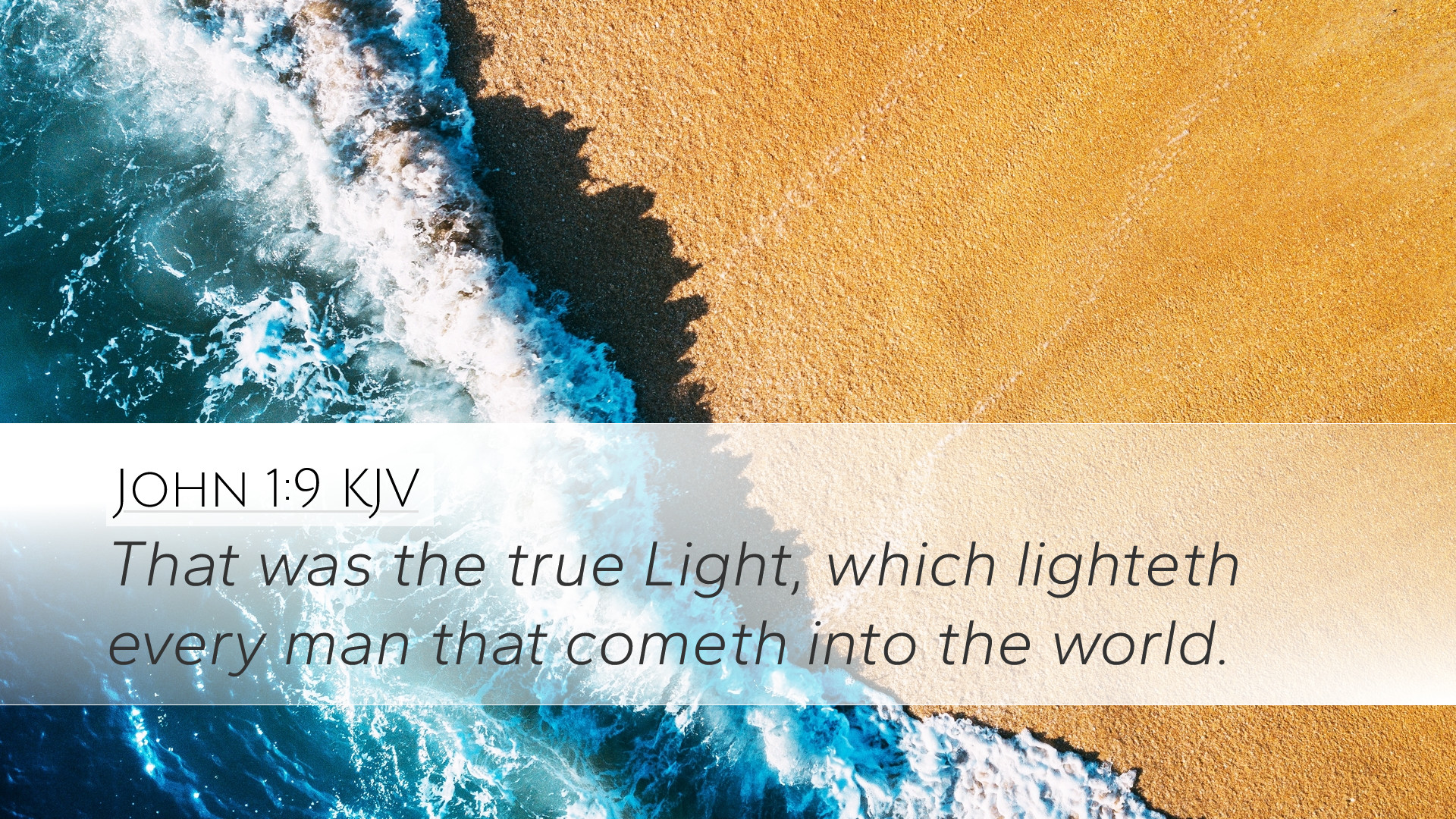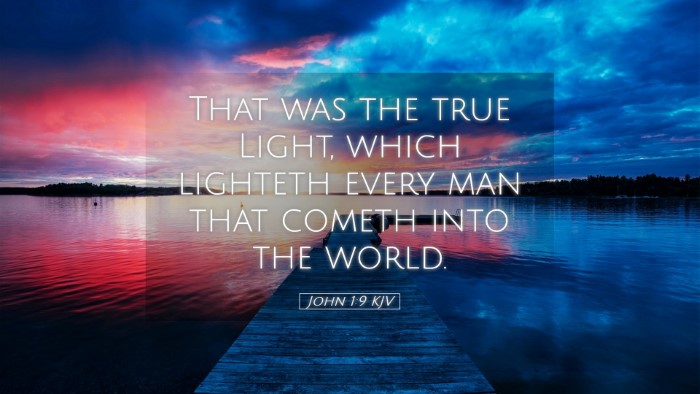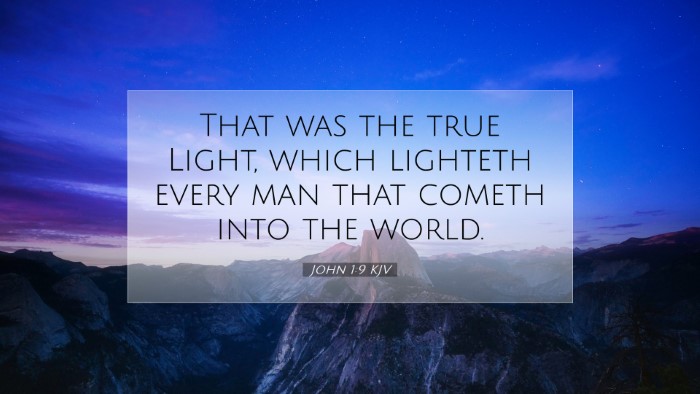Commentary on John 1:9
Verse: "That was the true Light, which lighteth every man that cometh into the world."
Introduction
The prologue of the Gospel of John is a theological introduction that encapsulates the essence of Christ's incarnation and His role as the divine Light in the world. John 1:9 specifically emphasizes the nature and function of this Light in relation to humanity. Various public domain commentaries shed light on this profound verse, revealing its depth and implications for believers, ministers, and scholars alike.
The True Light
Matthew Henry elucidates that the phrase "the true Light" distinguishes Christ from all false lights that the world offers. He asserts that unlike the misleading philosophies and vain teachings that misguide humanity, Christ embodies the authentic illumination that leads to salvation and understanding.
Albert Barnes expands on this by indicating that the word "true" here is representative of a reality that goes beyond mere appearance. In His essence, Christ is the ultimate source of truth and enlightenment—He reveals God’s nature and gives insight into spiritual realities that humanity so desperately needs.
Light and Its Significance
Light is a prevalent biblical motif, often associated with purity, guidance, and revelation. Adam Clarke emphasizes that the light metaphorically signifies knowledge and moral clarity. Just as light dispels darkness, the coming of Christ dispels ignorance and sinful confusion. His presence brings enlightenment that can change lives and transform hearts.
Matthew Henry also comments on the dual nature of this Light; it blesses the righteous with understanding while exposing the wickedness inherent in sinful hearts. This duality serves as a call for human response: embracing the Light or remaining in darkness.
Illuminating Every Man
John 1:9 states that this Light "lighteth every man that cometh into the world." This universal aspect of Christ's Light is a focal point in several commentaries. Albert Barnes observes that the phrase suggests an all-embracing reach of Christ’s influence. It suggests that every individual, regardless of background or circumstance, is given the opportunity to understand and accept this divine provision of Light.
Adam Clarke elaborates on this, emphasizing God's desire for all people to come to the knowledge of truth. He notes that while not all respond positively, the “light” is offered universally, which resonates with John 3:19, where the consequence of rejecting the Light is articulated. Thus, the responsibility lies with individuals to accept, reject, or ignore this Light.
The World’s Context
The context of "the world" is significant in understanding the text. Matthew Henry underscores that John uses "world" to denote the fallen state of humanity separated from God. In this context, the Advent of Christ can be seen as a divine intervention aimed at reconciling humanity to its Creator. He emphasizes that in the darkness of sin and despair, the coming of light offers hope and redemption.
Additionally, Albert Barnes notes that the world is encapsulated in moral ignorance and is blinded by sin. The contrast between light and darkness is palpable, thereby positioning Christ as the beacon of hope amidst a chaotic environment. The term "world" here also carries an implication that the access to God's grace is not limited to the Jewish culture but extends to all nations and peoples.
Response to the Light
The verse invites a response that is critical for believers, ministers, and those seeking truth. Adam Clarke posits that acknowledging the Light invites an essential transformation in the believer's life. True acknowledgment leads to walking in the paths illuminated by Christ rather than continuing in the obscurity of sin.
Matthew Henry warns that rejection of this Light results in continued blindness and moral error. The choice to embrace or reject the Light is fundamental in a believer's journey and shapes their relationship with God. This teaching serves as a necessary reminder for pastors and theologians to encourage their congregations towards receptivity to God’s Word.
Concluding Thoughts
John 1:9 encapsulates the heart of the Gospel message—that Christ is the true Light that brings illumination to every person. The contributions from esteemed commentators like Matthew Henry, Albert Barnes, and Adam Clarke foster a deeper understanding of the theological implications embedded in this passage. This verse calls believers to recognize the Light, respond to its illuminating power, and shine that Light in a world in dire need of hope and salvation.


